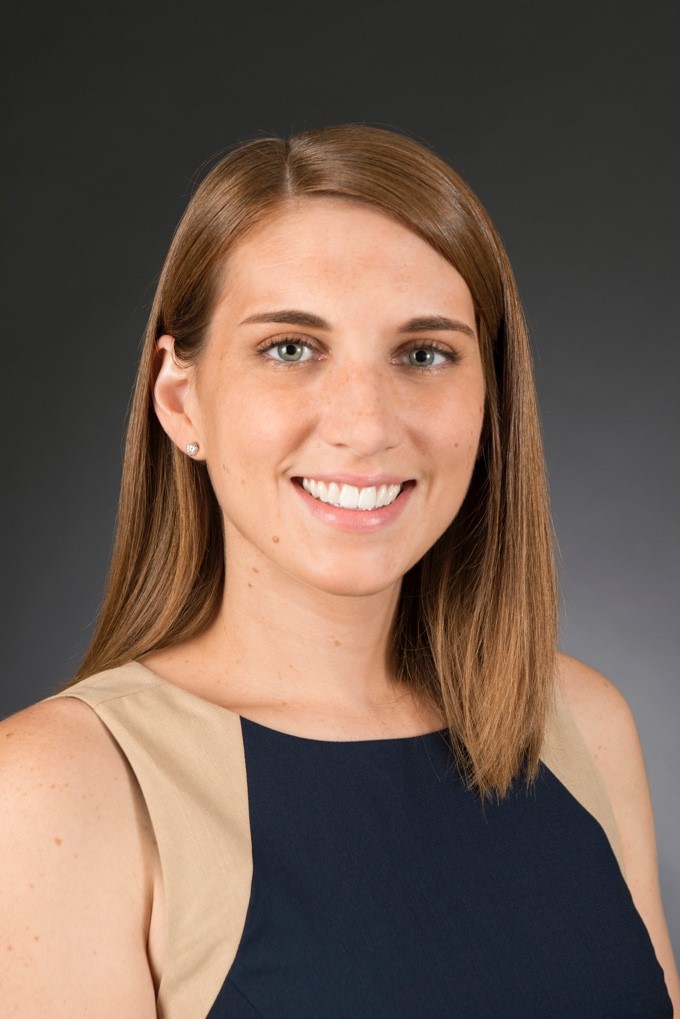October 5, 2023 Addressing the Palliative Care Needs of Patients with Acute Myeloid Leukemia (AML): Specialty Palliative Care (3:00-6:00 PM)
DESCRIPTION
Specialty Compared to Oncology delivered Palliative Care for Patients with Acute Myeloid Leukemia (SCOPE-Leukemia) is a cluster-randomized comparative effectiveness trial of primary palliative care versus specialty palliative care in patients with acute myeloid leukemia (AML) and their caregivers. The goal of the trial is to answer a critical question on how to best address the palliative care needs of patients with AML and their caregivers and provide essential data on how healthcare systems can ensure that optimal palliative care services are available for their patients.
As part of this trial, palliative care clinicians (i.e., physicians and advance practice providers) will attend a three-hour training focused on the following educational objectives:
- Understand the unmet palliative care needs of patients with AML.
- Manage the physical and psychological symptoms experienced by patients with AML.
- Develop strategies to promote effective coping and enhance illness and prognostic understanding in patients with AML.
- Promote shared decision-making and strategies to optimize end-of-life care for patients with AML.
* Please note that the educational course will be offered on multiple occasions to accommodate the schedule of palliative care clinicians participating across multiple institutions. Palliative care clinicians will attend a single educational training that will last 3 hours. Also, the time that this may occur may be variable than the times that are listed below. There will be at least 10 sessions throughout the duration of the course.
Target Audience
This activity is intended for Physicians, Nurse Practitioners and Physician Assistants in the specialties of Hematology/Oncology and Hospice and Palliative Care.
Learning Objectives
Upon completion of the training course, participants will be able to:
- Assess the palliative care needs of hospitalized patients with AML.
- Demonstrate effective management of physical and psychological symptoms experienced by patients with AML.
- Discuss effective coping and engage in discussions to enhance illness and prognostic understanding in patients with AML.
- Discuss end-of-life care preferences for patients with AML and incorporate strategies to optimize care at the end of life for this population.
- Demonstrate effective collaboration among MD and APP team members when delivering palliative care to patients with AML.
Additional Information
Massachusetts General Hospital
Cancer Outcomes Research Education Program (CORE)
Division of Palliative Care and Geriatric Medicine
Oregon Health and Science University
Medicine and Psychiatry
Mass General Brigham

SPECIALITY PALLIATIVE CARE MODEL
9:00AM | Welcome and Introductions
| Ali Kavanaugh, MSN, ACNP-BC, ACHPN |
9:05 | Study and Leukemia Overview
| Areej El-Jawahri, MD |
9:50 | Symptom Management
| Jason A. Webb, MD, DFAPA, FAAHPM |
10:50 | Break |
|
11:05 | Prognostic Awareness and Coping
| Ali Kavanaugh, MSN, ACNP-BC, ACHPN |
12:05PM | Break |
|
12:20 | Collaboration and Communication
| Jason A. Webb, MD, DFAPA, FAAHPM |
12:35 | Brief REDCap Demonstration / Review | Ali Kavanaugh, MSN, ACNP-BC, ACHPN |
12:45PM | Adjourn |
|

Areej El-Jawahri, MD - Course Director
Director of BMT Survivorship Program,
Associate Director of the Cancer Outcomes Research and Education Program (CORE),
Massachusetts General Hospital;
Director of Digital Health,
Massachusetts General Hospital Cancer Center;
Associate Professor of Medicine,
Harvard Medical School
Dr. El-Jawahri graduated from Harvard Medical School and completed her residency training at Massachusetts General Hospital. She subsequently completed her hematology-oncology fellowship at the Dana-Farber Harvard Cancer Center Fellowship Program. Dr. El-Jawahri is an oncologist specializing in the care of patients with hematologic malignancies and those undergoing hematopoietic stem cell transplantation and adoptive cellular therapy. Her goal is to improve the lived experience of patients with hematologic malignancies and their families. Her research interests include investigating patient-reported outcomes, developing interventions to enhance patient-centered decision-making, and designing supportive, palliative, and digital health interventions to improve the care of patients with hematologic malignancies and their families. She serves as the Director of the Blood and Marrow Transplant Survivorship Program, the Associate Director of the Cancer Outcomes Research and Education Program (CORE), and the Director of Digital Health at Massachusetts General Hospital.

Alison Kavanaugh, MSN, ACNP-BC, ACHPN
Inpatient Nurse Practitioner Lead,
Division of Palliative Care and Geriatric Medicine
Massachusetts General Hospital
Ms. Kavanaugh is the Nurse Practitioner Lead for the Massachusetts General Hospital inpatient palliative care consult service. She is a graduate of Colgate University and earned her Bachelor of Science in Nursing and Master of Science in Nursing at the MGH Institute of Health Professions. Ali completed the Harvard Interprofessional Palliative Care Fellowship program, and is board certified in both Acute Care and Hospice & Palliative Care. She has a particular interest in the care of patients with cancer and their families and is part of a research team investigating the integration of palliative care services for patients with hematologic malignancies and those undergoing hematopoietic stem cell transplantation.

Jason A. Webb, MD, DFAPA, FAAHPM
Section Chief, OHSU Palliative Care, Quality Medical Director,
Oregon Health & Science University (OHSU) Palliative Care;
Associate Professor, Department of Medicine, Department of Psychiatry,
Oregon Health & Science University (OHSU) Knight Cancer Institute, Oregon Health & Science University
In 2020, Dr. Webb joined Oregon Health and Science University as the Section Chief of Palliative Care, Knight Cancer Institute. He is an Associate Professor of Medicine and Psychiatry, and Dr. Webb is directing the clinical, education, and research programs for the Section of Palliative Care in the Division of Hematology and Medical Oncology and across OHSU Health. Additionally, he serves as the Quality Medical Director for Palliative Care for OHSU Health.
Dr. Webb focuses his practice on the mental health and palliative care needs of patients with chronic serious illness. Dr. Webb is an active clinical member of OHSU Palliative Care, where he attends on the inpatient Palliative Care Consultation Service. He provides outpatient palliative care for patients in the Knight Cancer Institute concurrently with their oncologists, treating their pain and managing complex symptoms, with special emphasis on the neuropsychiatric aspects of care for cancer patients.
Dr. Webb received his medical degree from the University of Nevada, School of Medicine, and completed a combined Internal Medicine and Psychiatry residency training at Duke University. He served as the Chief Resident for Consultation-Liaison Psychiatry and the Medicine-Psychiatry Chief Resident at Duke University Hospital. Dr. Webb also served for an additional year as the Internal Medicine Chief Resident at the Durham Veterans Affairs Medical Center in a leadership role for the Duke Internal Medicine Residency training program. Dr. Webb then completed fellowship training at Duke University in Hospice and Palliative Medicine prior to joining the faculty of Duke Palliative Care in 2014. He served as the Director of Education for the Duke Center for Palliative Care, and the Program Director for the Hospice and Palliative Medicine Fellowship at Duke from 2014 until 2020 where he was an Associate Professor of Medicine and Psychiatry.
Dr. Webb’s conducts collaborative clinical research with colleagues at Duke University and Massachusetts General Hospital. This research team is currently conducting multiple randomized trials examining the role of early palliative care interventions for patients with hematologic malignancies undergoing curative intent treatments including patients undergoing bone marrow transplantation. His team- based research has been published in JAMA Oncology, Cancer, and the Journal of Palliative Medicine.
Nationally, Dr. Webb has served on the National Comprehensive Cancer Network (NCCN) guidelines committee for the Cancer-Related Fatigue panel and was a member of the NCI Palliative and Supportive Care Editorial Board for the Physicians Data Query. He is an active member of the American Academy of Hospice and Palliative Medicine (AAHPM) currently serving on the Quality Committee and has previously served as the Chair of the Early Career Professional’s Special Interest Group (SIG), the Psychosocial and Mental Health SIG, Co-Chair of the Outpatient Palliative Care SIG, and served as an Associate Editor for the Symptom Assessment and Management section for PC-FACS. Dr. Webb has been honored by the AAHPM as an Inspirational Leader in Hospice and Palliative Care, was named an AAHPM Hearst Leadership Scholar in 2018, and achieved Fellow status in the Academy in 2019. In 2020 he was named a Distinguished Fellow of the American Psychiatric Association.
In support of improving patient care, Mass General Brigham is jointly accredited by the Accreditation Council for Continuing Medical Education (ACCME), the Accreditation Council for Pharmacy Education (ACPE), and the American Nurses Credentialing Center (ANCC), to provide continuing education for the healthcare team.
Credit Designation
American Medical Association (AMA)
Mass General Brigham designates this live activity for a maximum of 3.0 AMA PRA Category 1 Credits™. Physicians should claim only the credit commensurate with the extent of their participation in the activity.
American Academy of Physician Assistants (AAPA)
Mass General Brigham has been authorized by the American Academy of PAs (AAPA) to award AAPA Category 1 CME credit for activities planned in accordance with AAPA CME Criteria. This activity is designated for 3.0 AAPA Category 1 CME credits. PAs should only claim credit commensurate with the extent of their participation.
Available Credit
- 3.00 AAPA Category I CME
- 3.00 AMA PRA Category 1 Credit™
- 3.00 Participation

 Facebook
Facebook X
X LinkedIn
LinkedIn Forward
Forward